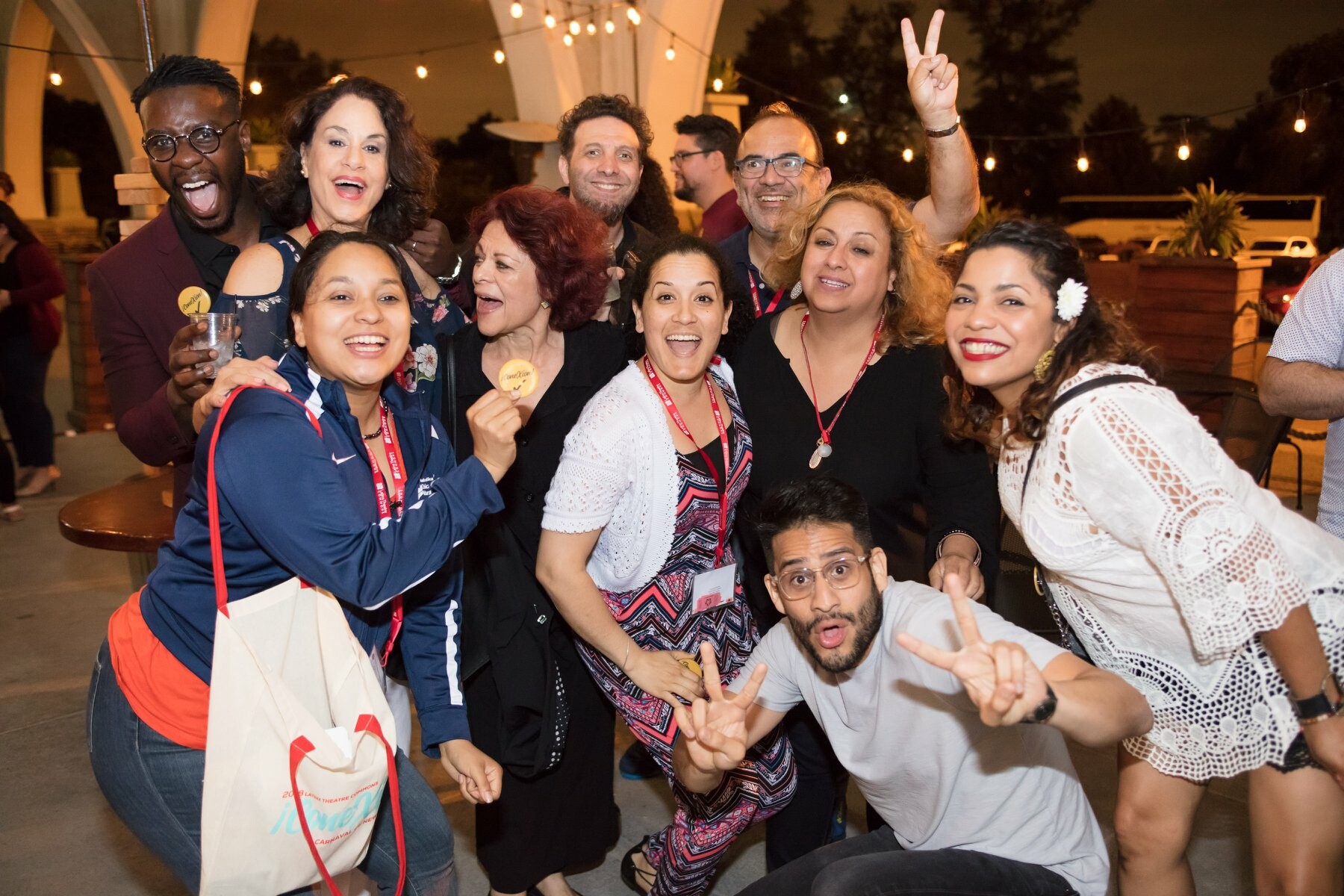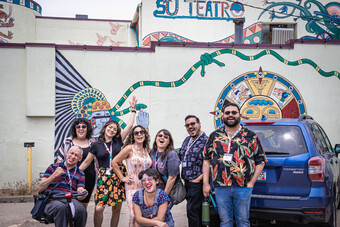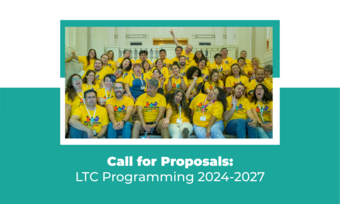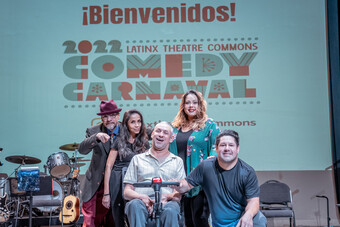My instinct in a fucked-up situation is to make a joke. Little did I know when I pitched the Comedy Carnaval to the Latinx Theatre Commons Steering Committee in 2018 just how fucked-up the situation would be by the time the event came to fruition.
I joined the Latinx Theatre Commons (LTC) in summer 2015. At the time, I was the casting director and artistic associate at Arena Stage in Washington, D.C., where I had the pleasure to work with LTC co-founder Karen Zacarías who was a playwright in residence. I had spoken with Karen about my frustration at the lack of Latine representation on “mainstream” stages. She shared that she and several other leaders in the field had started a movement whose purpose was to tackle that very issue by raising awareness of the incredible talent pool of Latine theatre artists nationally, advocating for inclusion of our stories, and documenting the impact of Latine theatre through rigorous scholarship.
The movement has been wildly successful in so many ways. The writers, actors, directors, and designers that have been featured at the encuentros hosted by the Latino Theatre Company in Los Angeles and the carnavals hosted by DePaul University in Chicago have gone on to high profile gigs Off-Broadway and on television. The relationships formed at the regional convenings in New York and Seattle and Miami have led to jobs and paychecks and funding and collective advocacy. The national awareness of culturally specific Latine companies, as well as the prevalence of Latine stories on stage at predominantly white institutions (PWIs) has significantly increased in ways that can be directly traced back to the efforts of the Latinx Theatre Commons, and I am immensely grateful to the founders and everyone who has worked so hard to make the work possible.
When the opportunity arose in 2018 to make a pitch to the LTC Steering Committee for new programming, I was primarily inspired to pitch the Comedy Carnaval due to frustration with the dominant culture of the American theatre. I had been heartened and excited to see more Latine stories on stage at predominantly white institutions (PWIs), however my enthusiasm had waned as I noticed how disproportionately these PWIs favor Latine “trauma porn” that exploits the suffering of marginalized people to console or entertain the privileged and powerful. So much of the time that Latine stories are programmed, those stories feature narratives about immigration, narcotics trafficking, imprisonment, family separation, or gang violence. At best, this over-emphasis on narratives of Latine oppression is a well-intentioned desire to foster dialogue about relevant issues. At worst, it is a calculated and deeply rooted strategy to propagate harmful stereotypes in order to justify and reinforce the status quo of white supremacy.
Yes, our communities are facing injustice and tragedy. Yes, we should address those problems. But one of the most powerful and versatile tools that our communities use to tackle oppression is the power of humor.









Comments
The article is just the start of the conversation—we want to know what you think about this subject, too! HowlRound is a space for knowledge-sharing, and we welcome spirited, thoughtful, and on-topic dialogue. Find our full comments policy here